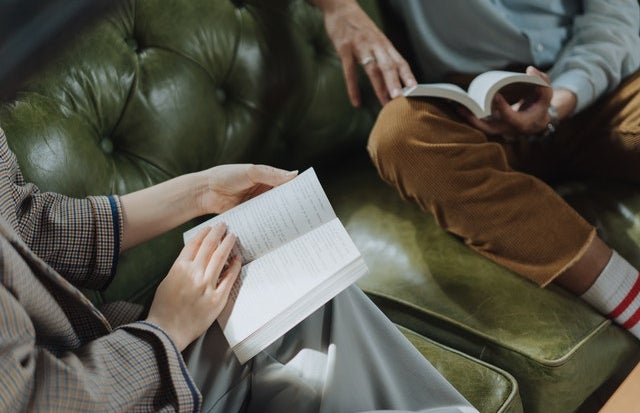Love is a choice, an action, and a truth in bell hooks “all about love.” And although I found myself questioning if I completely agreed with all of bell hooks’ points, I understood them completely, and dug into myself to find my own answers to the questions she posed.
“Capitalism and patriarchy together, as structures of domination, have worked overtime to undermine and destroy this larger unit of extended kin.”
This recurring idea of capitalism and patriarchy as forces bonding together really stuck with me throughout my reading of this book. It had me thinking about their relationship as coexisting entities dependent on each other for survival, as well as their relationship to love in all its contexts. Love in the stereotypical, American nuclear family thrives under the patriarchy. The family in the United States is often focused on that stereotype of the nuclear family: mother, father, children. In this book, hooks discusses how this very aspect of family being this small unit rather than having relations with extended kin isolates women and children from others, making male domination easier in the home and in the public. The entire concept of marriage and the performance of gender roles comes to my mind as being closely linked to capitalism and patriarchy.
“Much fancy footwork takes place to make it seem that New Age mystical evocations of yin and yang, masculine and feminine androgyny, and so on, are not just the same old sexist stereotypes wrapped in more alluring and seductive packaging.”
I found this section extremely compelling and interesting because of the fact that “New Age mystical evocations” are usually seen as progressive and new, when in fact a lot of ‘New Age’ ideas go back extremely far into history. And yet, hooks makes a relevant point here, that these are repackaged stereotypes being sold to the consumer of difference. “Consumer culture in particular encourages lies” rings true here. Hook’s quotes Thomas Merton, who says, “In fact, a choice between the living and the dead, between men and money, or men and power, or men and bombs, the choice will always be for death, for death is the end or the goal of life.” Power and love cannot coexist.
“We do not need to undergo anything dreadful to feel deeply.”
I found this to be almost like an affirmation. I often hear self deprecating jokes and have even made them myself, about past events and traumas and how they shape our sense of humor and emotions in our adult life. However, we do not have to go through constant suffering in order to feel any emotions. Although suffering is a part of life and a part of love sometimes, it does not need to be a requirement. We all deserve good, happy, joyous things and moments in our lives, in all areas, especially love. You deserve love, care, and respect from yourself and others.
Are we willing to put in the work to bring about the love ethic into public policy? Would a love ethic radically change our ways of living and create a cultural revolution amongst capitalism and patriarchy’s interactions? These are some of the questions I think hooks is forcing us to consider, and depending on your answer, I think you can see where you fall in thought.


